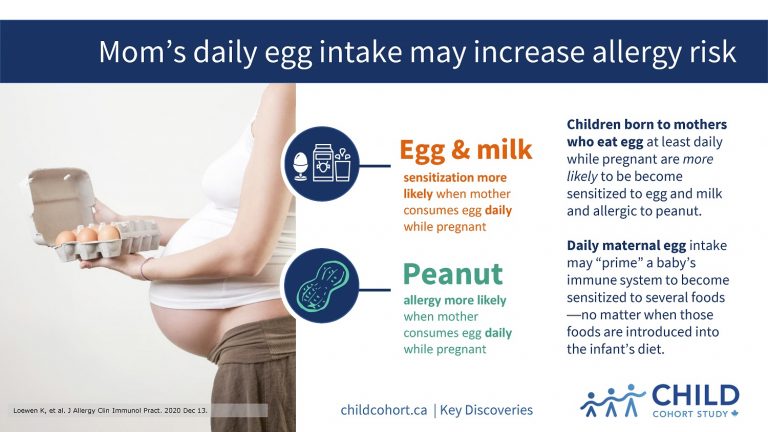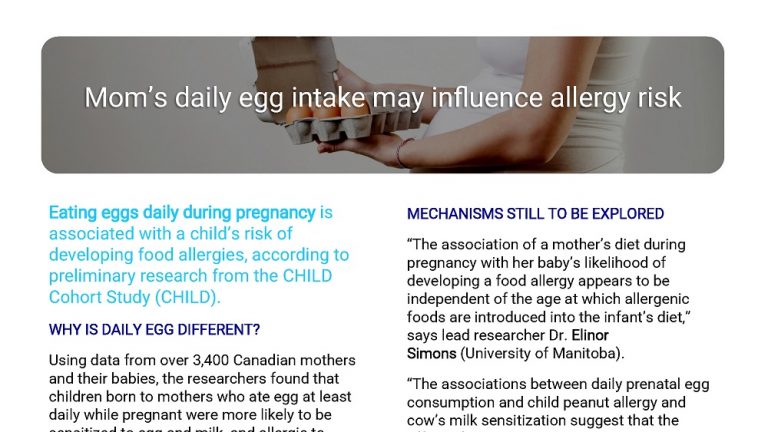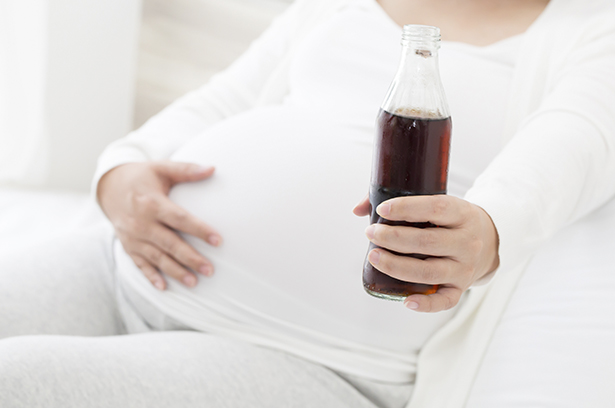Mom’s daily egg intake may influence allergy risk
Eating eggs daily during pregnancy is associated with a child’s risk of developing food allergies, according to preliminary research from the CHILD Cohort Study (CHILD).
WHY IS DAILY EGG DIFFERENT?
Using data from over 3,400 Canadian mothers and their babies, the researchers found that children born to mothers who ate egg at least daily while pregnant were more likely to be sensitized to egg and milk, and allergic to peanut at age three. The study, published in the Journal of Allergy and Clinical Immunology: In Practice, found that the frequency of infant egg sensitization at age one year was 18% among infants born to mothers who consumed egg at least daily and 6% to 8% for infants of mothers who consumed egg up to six days per week. A similar pattern of egg sensitization was seen at three years of age. Peanut allergy was greater among infants born to mothers who consumed egg daily during pregnancy, but was not associated with the frequency of prenatal peanut consumption.MECHANISMS STILL TO BE EXPLORED
“The association of a mother’s diet during pregnancy with her baby’s likelihood of developing a food allergy appears to be independent of the age at which allergenic foods are introduced into the infant’s diet,” says lead researcher Dr. Elinor Simons (University of Manitoba).
“The associations between daily prenatal egg consumption and child peanut allergy and cow’s milk sensitization suggest that the effect of daily maternal egg intake may not be ‘allergen specific,’” comments first-author Dr. Keely Loewen, a Pediatric Chief Resident at the University of Manitoba.
“Further research should explore possible mechanisms of these associations and examine the potential roles of other factors, before recommendations can be made regarding maternal egg consumption in pregnancy,” says Dr. Simons.
Other CHILD research, on the other hand, has indicated that maternal consumption of peanuts during pregnancy, combined with later breastfeeding and early introduction of peanut into an infant’s diet, can have a protective effect against the later development of allergy.





